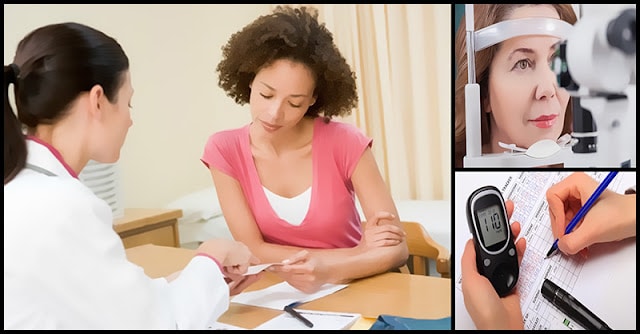Women now take better care of themselves in an earlier point of their lives. There is a saying that “40 is the new 30”, as turning 40 doesn’t really mean that your health begins an uncontrollable downhill slide.
Women become more prone to health issues as they age. It’s really necessary to maintain good health in order to enjoy life to the fullest. You need to make healthy choices in order to stay healthy. One of these choices is getting appropriate screening test once you reach the age of 40. Screening tests can detect possible health-related problems which can be of great help in the treatment plant.
Here Are The Important Health Screening Tests:
Cholesterol Test
Heart disease is the leading cause of death, and stroke is the fifth leading cause of death. This is why starting at age 20, it is recommended that women should get their cholesterol levels checked every 4 to 6 years.
Screening for cholesterol once a year becomes important after age 45, as heart disease risk increases with age.
With a simple blood test, you can find out the levels of your total cholesterol, your “bad” LDL cholesterol, your “good” high-density lipoprotein (HDL) cholesterol, and your triglycerides, another kind of fat in the blood.
Breast Exam
Breast cancer is considered to be the most common cancer in women.
Regularly examining your breasts on your own or breast self-exams (BSEs) are an important step in finding breast cancer early.
Women above the age of 40 should check their breasts at home regularly for differences in sizes or shape, lumps, rashes and dimpling. Nipples should also be checked if they produce fluid when gently squeezed. Always be aware of how your breasts feel and look and report any changes to your physician.
Blood Glucose Testing
Day by day, the number of people diagnosed with diabetes is increasing.
Having a disease like diabetes is really tough. It can increase the risk of developing other sicknesses. Have yourself screened for prediabetes and diabetes every three years after the age of 40 if you are at high risk for having diabetes.
Some of the risk factors for diabetes are severe obesity, physical inactivity, and having a first-degree relative with diabetes.
Luckily, a simple blood test or urine test is only needed to check your sugar levels.
Colorectal Cancer Screening
Colorectal cancer is common cancer in men and women. People are at higher risk for this cancer if they have a family history of colorectal cancer or polyps, or due to inflammatory bowel disease or certain inherited conditions. They should get screenings before the age of 50 and may be advised to have more frequent screenings.
Some of the screenings for colorectal cancer are:
- High-sensitivity fecal occult blood tests (FOBT).
- Standard (or optical) colonoscopy.
- Sigmoidoscopy.
- Stool DNA test (FIT-DNA).
- Virtual colonoscopy.
Ask your doctor how often you should be screened and with which screening tests.
Blood Pressure Screening
High blood pressure can damage blood vessels as well as increase your risk of stroke and heart attack.
According to the American Heart Association, after menopause, a woman’s chances of developing high blood pressure increase thus, making it important to have your blood pressure monitored regularly.
If your blood pressure is higher than 140/90 mm Hg, then you may need to consult your doctor. Some ways to lower your blood pressure include medication, exercise, and diet.
Bone Density Test
Females are at higher risks of developing broken bones or osteoporosis. This is due to age-related declining levels of estrogen, which plays a protective role on bones in women.
Women age 40 and above should be screened for osteoporosis. Opt for a bone density test, which shows the amount of bone a person has in the spine, hip, or other bones. It will tell you whether you bone mass is the same or if you are losing bone.
Skin Check
Women with family history of skin cancer, significant sun exposure, the presence of multiple unusual moles fair skin, and a history of several blistering sunburns (especially early in life) are at a higher risk.
Skin cancer can be diagnosed early by doing a self-exam every month. You can do it by looking for moles that are larger than a pencil eraser, have an irregular border or color and are asymmetrical (having parts that fail to correspond to one another in shape, size, or arrangement).
Immediately see your doctor if you notice any changes in moles. Have an annual full-body exam with a dermatologist.
Dental Checkup
According to the American Dental Association, some of the dental conditions associated with aging are periodontitis, dry mouth (xerostomia), and root and coronal caries.
Visiting your dentist every year is important for early diagnosis of oral problems and to rule out the possibility of oral cancer.
Women above 40 should have a yearly dental check-up. However, for those who smoke or drink more than one or two drinks a day, dental checkups are recommended every six months as they are at higher risk for gum disease and oral cancers.
Eye Exam
In elderly women, the four most common eye problems are cataracts, macular degeneration, dry eye syndrome, and glaucoma.
Timely eye exams are important to catch any eye health problems. Eye diseases have no early symptoms or warning signs. However, you’ll be able to detect it by having a dilated exam before vision loss occurs.
It is recommended by the National Eye Institute that everyone above age 50 or above should have a comprehensive dilated eye exam.









